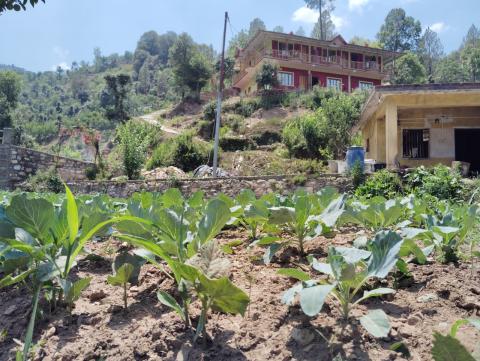
Redefining Success: Shaping a Sustainable Future through Education
In the previous week, we celebrated World Environment Day. The importance of this day is no longer merely symbolic; the changing climatic conditions across the globe require greater attention towards environmental concerns. In Delhi, the temperature crossed 50 degrees, and experts believe it may even reach 60 degrees in the next few decades. It’s a clear sign that rising temperatures would make some places uninhabitable. But why does the response to this crisis still appear as mere lip service? It’s the poor and the vulnerable who pay the highest price for the extreme climatic conditions. Thousands of daily wage earners, street vendors, and several other people have no choice but to work even in these extreme heat conditions. Fruit and vegetable sellers face this hardship without even having basic services like a fan. On the other hand, people who can afford luxury items like ACs claim that their ACs are not working effectively in such extreme heat.
Though we convey the message to every child that we need to protect the environment by planting trees and saving water, we continue to avoid the real reason: consumption. The real threat to the environment comes from higher consumption levels and an economy that promotes consumption on a large scale. If we observe closely, we find that the consumption-based economic model has deeply penetrated our idea of identity and success. We often confuse success with higher material consumption. People who have access to bigger houses, multiple cars, and multiple dresses are considered successful. This notion needs to be deeply challenged. Success should be redefined, particularly around the meaningful contribution one makes to the community one lives in, rather than the material wealth one accumulates. We need to move away from our obsession with the world’s top 100 richest people to the top 100 people who have contributed meaningfully to improving the lives of those around them. We have to change our ideals and stories. Millions of people who live in villages at the lowest level of consumption need to be declared as climate warriors. The mission of rapid urbanization needs to be abandoned, and the focus should be on promoting a localized, self-sufficient economy.
What role can schools play? Schools play an extremely important role in shaping the dreams and aspirations of children. The current practices in schools that promote ruthless competition and glamorize success are extremely problematic. One of the primary considerations for parents when choosing a school is the opportunities it provides for lucrative careers for students. And lucrative career opportunities mean more money and more consumption. As I indicated earlier, a total reorientation is required, as every unit is linked to career prospects. Likewise, every unit of the curriculum needs to be linked to the environmentally friendly disposition one develops. This disposition may look different in practice, but there would be one common phenomenon, and that should be an almost feeling of guilt when one consumes more. This is the only way to preserve the planet we inherit.
- Log in to post comments
